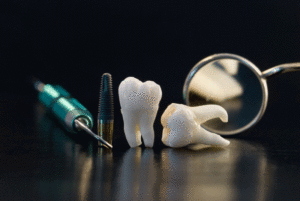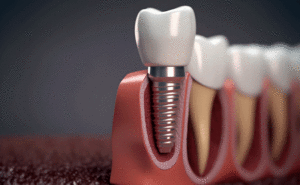Oral cancer is serious. According to the Oral Cancer Foundation, 43,000 Americans are diagnosed with oral cancer each year. Oral cancers and their many varieties are often not noticed in the early stages. The following is a list of questions regarding oral cancer and even some ways to prevent it.
What is Oral Cancer?
It may seem like a silly question; but in fact, it is quite serious. There are more than 200 types of cancer that are known to affect humans. The short answer is that oral cancer is a form of cancer that appears in the oral cavity. The longer answer is any cancerous growth in the mouth including on the tongue, lips, cheeks, gums, pallet, soft pallet, tonsils, glands such as the salivary glands, and even the floor of the mouth. Oral cancers start in the mouth and rarely migrate to other parts of the body. They do, however, grow deep into the oral tissue and the bony structures within the mouth.
Who gets Oral Cancer?
Oral cancer is usually caused by outside factors. However, sometimes our genes can play a direct or indirect role in the development of oral cancer. A genetic predisposition can increase the risk of an individual to develop oral cancer without outside factors. So clearly, genetics do play a role in some cancer cases. The primary set of risk factors involves the use of tobacco. Smokers of cigarettes, pipes, and cigars are top on the list of people having an increased risk for oral cancer. Those are followed closely by people who chew tobacco, snuff, etc. If you already have a genetic predisposition towards developing oral cancer, then tobacco will increase this risk significantly.
What are the Symptoms of Oral Cancer?
Early forms of cancer may not have a noticeable symptom. A dentist can help to diagnose oral cancer in its earliest stages. Other symptoms include swelling, bumps, and growths that may feel like the skin over that area is rough. Areas in your mouth that develop sores may be cancerous. Red spots (hard to see because the tissue is red or pink) can be signs of cancer. Any abnormal change in the tissue of your oral cavity should be checked out by a dentist immediately.
What Can I do to Prevent Oral Cancer?
- One of the first things you can do is to reduce your known risk factors.
- If you use tobacco products, you should stop. Vaccination for HPV may also reduce the risk of some forms of oral cancer.
- Practice good oral care such as brushing, flossing, and using mouthwash after every meal.
- Another key factor is UV radiation. Sunlight can damage the tissue of your lips. Wear lip protector such as an SPF chap stick when out in the sun. Protecting your face, ears, neck, and throat with SPF sunscreen is also a good way to help prevent head cancer, which also includes oral cancer.
- Be an active participant in your own health. This includes activities such as exercise, eating a healthy diet, and avoiding food that lowers your immune system.
- Conduct an oral self-exam on a monthly basis. It may seem kind of awkward, but it works.
Additionally, include regular dental visits as part of your routine for preventative medicine. Be specific with Dr. Caven and his team about performing an oral cancer screening. Not all exams include a cancer screening. Contact Dr. Caven by phone or visit online at www.cavendental.com for more information about scheduling a dental visit today.


